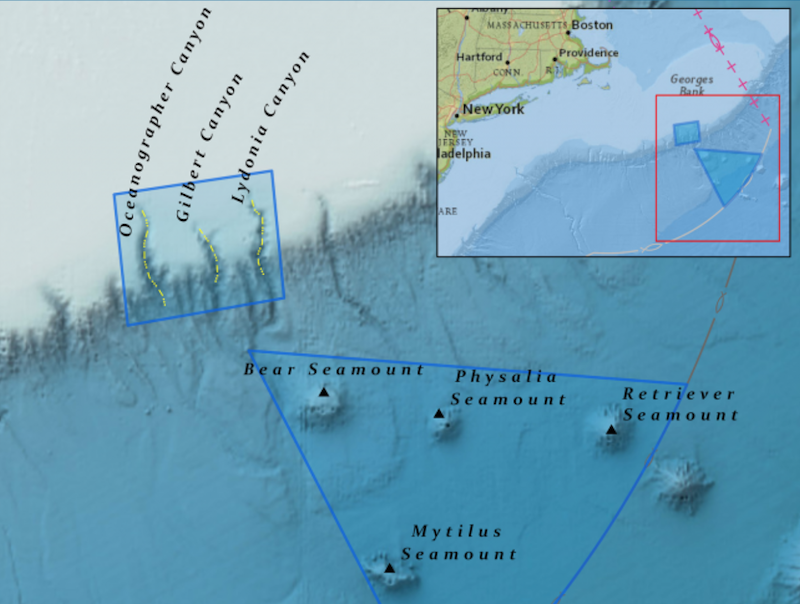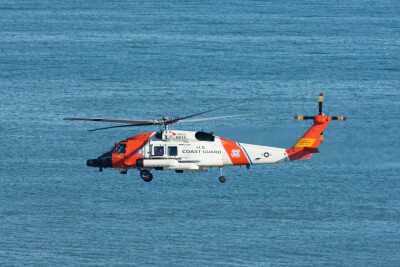A federal appeals court has upheld the creation of the Northeast Canyons and Seamounts Marine National Monument, affirming that the federal Antiquities Act can be applied at sea as well as on land.
The Massachusetts Lobstermen’s Association and other fishing advocates challenged former President Barack Obama’s designation of the 5,000-square-mile area at the edge of the continental shelf south of Georges Bank in 2016. A lower federal court ruled against their lawsuit in 2018.
Conservation groups and environmental advocates joined the arguments in both the lower and appeals courts, portraying the monument protections as critical to protect deep-sea corals, whales and other marine life from future offshore oil exploration and “industrial fishing.”
In an opinion for the District of Columbia Court of Appeals, Circuit Court Judge David Tatel explained why the three-judge panel dismissed all of the fishermen’s arguments against the monument – starting with their contention that the Antiquities Act cannot apply to the sea floor.
“This argument need not detain us long because, as the district court explained, the Supreme Court has consistently held that the Antiquities Act reaches submerged lands and the waters associated with them,” Tatel wrote, citing creation of the Channel Islands and Glacier Bay marine national monuments off California and Alaska in the 1970s.
“Although the parties advanced, and the district court considered, other arguments about whether the Act reaches submerged lands—including arguments about historic practice and ordinary meaning—we need not wade into those waters, so to speak,” the opinion states. “On-point Supreme Court precedent resolves this claim.”
Industry groups objected when former President George W. Bush designated a marine national monument around the northwestern Hawiian Islands in 2006 – at the time the world’s largest marine reserve – and redoubled their opposition when Obama expanded the Papahanaumokuakea Marine National Monument four-fold in 2016.
The arrival of President Trump brought skepticism of the Antiquities Act and its presidential power to the forefront. In 2017, then-Interior Secretary Ryan Zinke suggested some fishing might be allowed in the new Northeast Canyons monument by working with the New England and Mid-Atlantic regional fishery councils.
“The court’s decision helps to ensure that the Antiquities Act will continue to protect fragile ocean ecosystems from industrial exploitation, strengthen their resilience in a changing climate, and preserve them for generations to come,” according to a statement by the Natural Resources Defense Council, which participated in the case along with the Conservation Law Foundation and Center for Biological Diversity.
The fishing industry groups are considering their next course of action, said Jonathan Wood, a senior attorney with the non-profit Pacific Legal Foundation representing the plaintiffs.
“We are disappointed in the decision, which we believe gets the law wrong and ignores critical arguments,” Wood wrote in an email. “If the decision stands, it will fundamentally change the Antiquities Act and the Constitution’s separation of powers between the President and Congress.”
Wood said the appeals court decision conflicts with another decision earlier by the Fifth District Court of Appeals – which hears cases from Texas, Louisiana and Mississippi – “creating an important split which the Supreme Court may need to resolve.”
Before deciding whether to appeal to the Supreme Court, the fishermen will likely ask all the District of Columbia circuit judges to review the decision, Wood added, which would “give the entire court an opportunity to decide whether to create the conflict with the Fifth Circuit."







